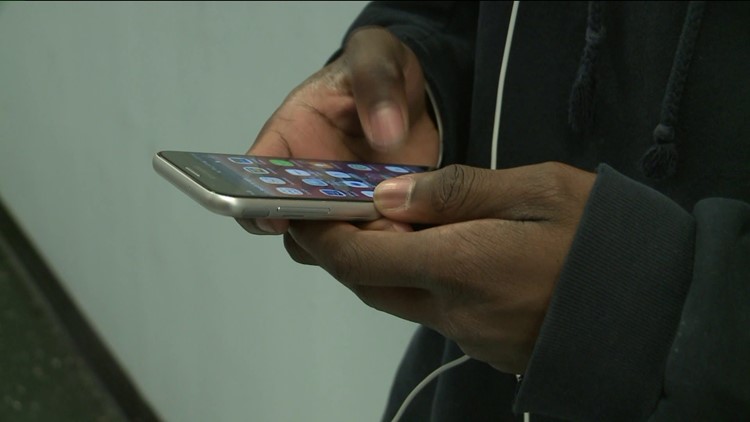WEST HARTFORD -- If you've ever felt like you can't stop scrolling through your phone, just blame your brain.
"You're scrolling for a hit," said Dr. David Greenfield, Assistant Clinical Professor of Psychiatry at UConn School of Medicine. "You're looking for a little bit of dopamine. You don't know that."
"The average number of times a person checks their phone is 50 to 300 times a day," said Greenfield, who compares smartphones to slot machines. "Every time you go on your phone, you don't know what you're going to find," said Greenfield. "You don't know how good it's going to be or how desirable it is, and you don't know when it's going to happen."
Receiving phone notifications elevates dopamine levels in the brain, as we anticipate a reward. Simply having your phone within eyesight also spikes levels of the stress hormone cortisol.
"The way you calm that stress response is by picking up the phone and checking it," said Greenfield.
There are several things you can do to keep compulsions in check: turn off notifications, don't sleep with your phone by your side or under your pillow, and put it away while eating and driving.
Another suggestion?
"Challenge your expectation that everything has to be responded to immediately," said Greenfield. "It doesn't."
Greenfield, who is also the founder of The Center for Internet and Technology Addiction in West Hartford, has created a Smartphone Compulsion Test.
While the test is by no means a diagnosis, it can be used as a tool to raise awareness of your phone usage.
You can take the test here.
Full interview with Dr. Greenfield:



